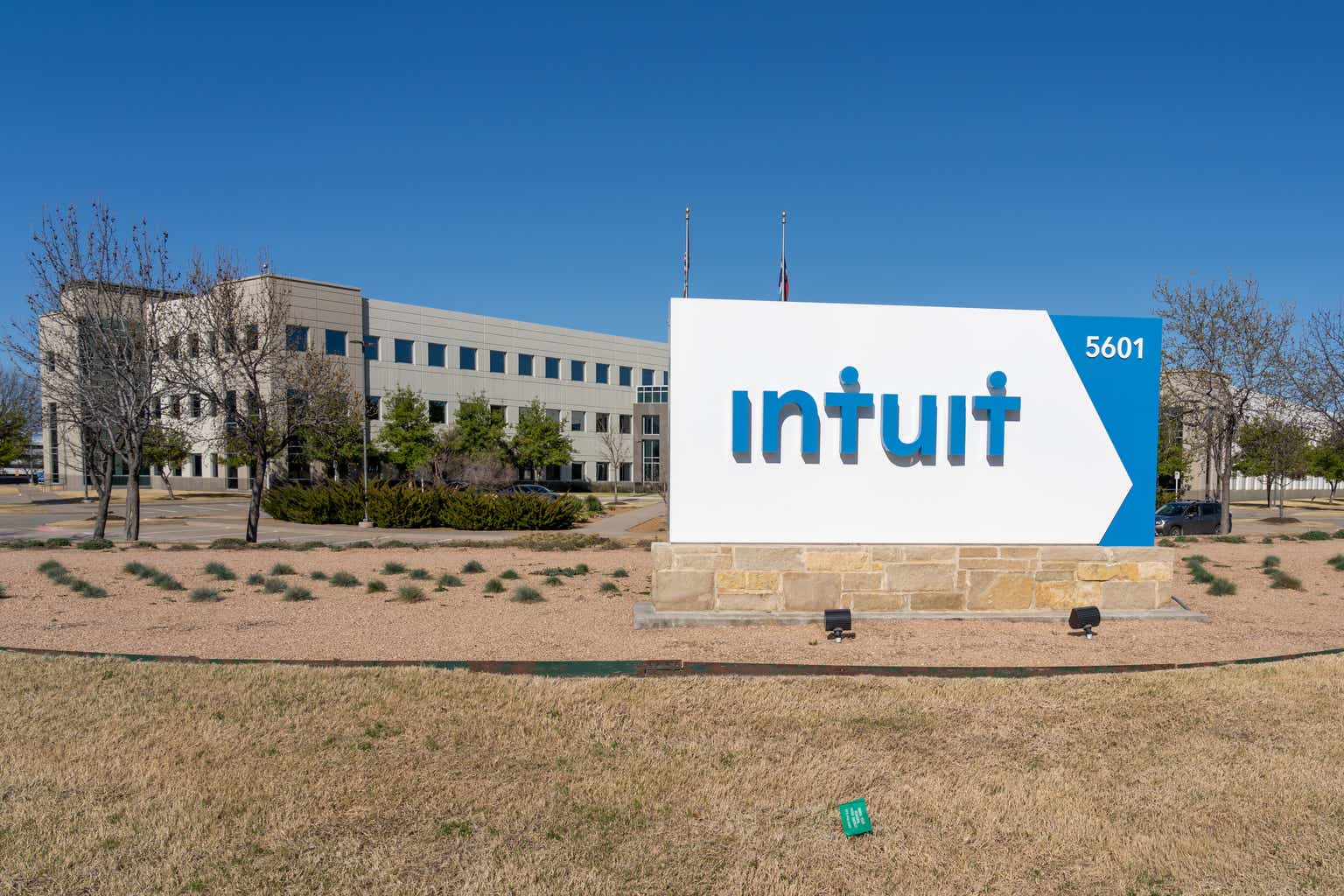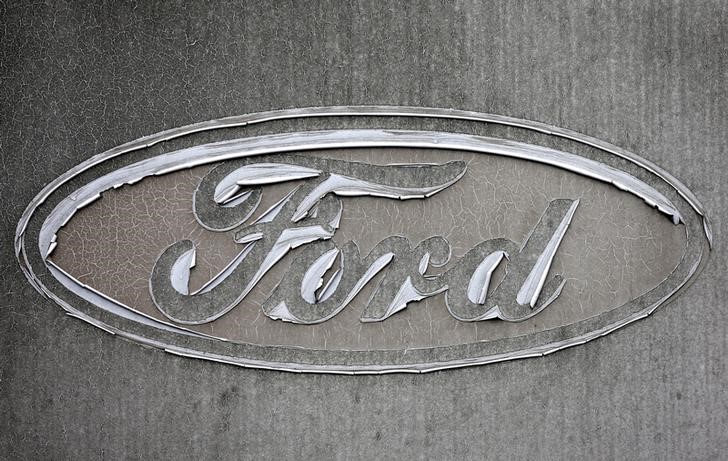Got a HELOC? Don’t pay it off…yet! Thinking of house hacking but are discouraged by the low cash flow numbers you’re getting back? Looking to invest in a high property tax state like Texas but are scared to swallow that big expense? All of these topics, and many more, are coming up on this episode of Seeing Greene!
David is back to answer YOUR real estate investing questions with his partner in crime, Rob Abasolo. Today, these two investing experts are going to tackle topics like whether or not to buy a house hack that DOESN’T pay for itself, how to account for the HIGH property taxes in hot real estate markets, whether to keep a property you love or sell it for its huge home equity, how to NEVER work again and the fifteen vs. thirty-year mortgage debate, plus when you should NOT pay off your HELOC (home equity line of credit) early.
Want to ask David a question? If so, submit your question here so David can answer it on the next episode of Seeing Greene. Hop on the BiggerPockets forums and ask other investors their take, or follow David on Instagram to see when he’s going live so you can jump on a live Q&A and get your question answered on the spot!
David:
This is the BiggerPockets Podcast show.
What’s going on, everyone? It’s David Greene, your host of the BiggerPockets Real Estate Podcast, the number one real estate podcast where we arm you with the information that you need to start building long-term wealth through real estate today. As always, on Seeing Greene, we are answering questions from you, our listeners.
Rob:
Yeah, today we’re going to get into questions like, when is house hacking no longer a smart strategy? How should property taxes factor into your market analysis? And how do you know to sell a property even if it’s cash flowing? And even if you love it, David?
David:
And most importantly, if you want a chance to ask your question, please go to biggerpockets.com/David. The link is in the description. And if you have a burning real estate question, pause this podcast, send me your question and then jump right back in.
Rob:
And before we jump into this episode, a quick tip. Are you doing something you haven’t heard on this podcast before? Well, we want to hear your tips and tricks. Apply to be a guest on our show over at biggerpockets.com/guest. People ask me this all the time, it’s very easy to remember, biggerpockets.com/guest. Fill out a form. And if you’re a fit for the show, you will get to share the mic with me and David Greene.
David:
We hope to see you there. All right, let’s get into this thing. Our first question comes from Gabriel in Greenville, South Carolina.
Gabriel:
Hey David, my name is Gabe. I’m located in the Greenville, South Carolina market, and I’m a beginner investor. I’m looking for my first deal, really want to do a house hack, but I have a question about when you draw the line as to say house hacking is no longer a good strategy. I know you mentioned all the time that house hacking is mainly a savings strategy where you try to get your largest expense, your mortgage payment covered by rent from tenants. But in my area, it seems like most of the properties I look at, the rent from your tenant, while you’re house hacking, would probably only cover about 50 to 60% of the mortgage payment. So in that situation, do you think it’s still a good idea to invest in a house hack or do you think I should pursue a different option such as a live and flip? I’m pretty bullish about it. I still want to do it, but just want to know what your thoughts are. Thanks.
David:
All right, good question. Gabriel speaking for the masses here. I think there’s a lot of people that are thinking the same thing. I can answer this one somewhat succinctly. My thought would be is 50 to 60% of the mortgage less expensive than if you had to pay all the mortgage or all the rent. If so, you’re winning and you own a home and you’re getting tax benefits and you get future appreciation. And when the rents go up, that 50 to 60 slowly becomes 60 to 70, 70 to 80 and so forth. Rob, what say you?
Rob:
Yeah, I guess there is this idea, this misconception that you have to pay all of your mortgage and you have to subsidize your entire mortgage with house hacking. That’s just a really nice bonus on the top, right? The first house hack I ever did, I got 400 bucks a month for my buddy. My mortgage was 1,100 bucks, so that meant out of pocket I was paying $700 a month, which was still less than 1,100 bucks a month or whatever my mortgage was, right? So at the end of the day, look, as much as I want you to subsidize all of it, let’s not get spoiled here. It is a gift to have a lower mortgage payment. And if it gets you into ownership a little bit faster and makes it cheaper to own than it would be to go out and rent to property, I think it’s always fine to house hack.
David:
Yeah. And I would say if you’re only seeing 50 to 60% of the mortgage covered, are you looking at the wrong houses? Are you just looking at a regular house that’s not an investment property and you’re saying, “Well, a three-bedroom, two-bathroom, if I rent out two of the bedrooms, I’ll make this much money,” but you should be looking for a five-bedroom or you should be looking for a triplex or you should be looking for a house with a basement and the main house and an ADU? The property itself makes a very big difference when you’re trying to generate income. The floor plan, the asset itself makes a difference. I mean, Rob, is this a mistake that you think people may be making where they’re looking at the wrong house and saying house hacking doesn’t work?
Rob:
Honestly, I really just think the mistake is in the mindset of how much you should subsidize. I think ultimately the way I look at it is if I were going to go out and rent a place and it’s going to cost me 1,500 bucks, but I get the opportunity to go buy a place and it’s going to cost me, let’s say 17,00 or $1,800 a month, if house hacking gets that monthly price to be less than what I would be paying renting, then it’s always a viable solution for me.
David:
The idea of house hacking is to cut into your housing expense. Now, if you can live for free, if you can make money, that’s amazing. We would never say don’t do it. But the better way to look at this is it better to keep paying rent and not own a home? Or is it better to save money on your housing allowance and own a home? And that’s what we’re talking about. And the advice that I often give is just when you’re looking for the area that you’re going to house hack in, look for a house itself that either has more bedrooms or more units. Look for ways you can bring in more income on the house instead of just saving the expense by buying a cheaper house.
Rob:
Good question, Gabriel.
David:
Thank you, Gabe.
All right, moving into Jeff from Austin. He says, “What role should property tax play in determining where to invest?” Oh, this is good. I’m glad I got you here for this one, Rob. “For example, in Texas, they have a fairly high tax rate because there’s no estate income tax. Does that make the investment bar higher in Texas than in another state that has a lower rate? Wouldn’t it in theory change the equation when analyzing for cash flow?”
Oh, I love this. Thank you, Jeff. This is a case of the clearly over-analyzing Alfred, which I think we’ve all been there. I started off my career I think in the same kind of thought. So basically, because property taxes are higher in some states than other, should you have a higher expectation on the 1% rule or someone else when look at properties? What do you think, Rob?
Rob:
I wouldn’t necessarily a higher expectation. It’s just, yeah, does it fit the 1% rule if that’s your metric, if that’s your golden metric? And it just means it’ll be harder in some of these areas, but I would imagine that when that’s the case, if property taxes are higher, then my assumption here is that rents would probably be higher to match the landlord. Landlords will charge more because they pay more in property taxes and thus rents might stay abreast with that, with property taxes. What do you think?
David:
Never heard you say abreast on this podcast before. I’m still-
Rob:
I was trying to work it in when I can.
David:
Yeah, I’m still trying to acclimate to that. Yeah, this is not that complicated. When you’re running numbers in Texas if you’re going to invest there, you just use a higher number for the property taxes to see if the rental is going to work.
Here’s something I’ve learned about things like higher property taxes. Life is like this. It is very easy to focus on the negative and not think about the positive that comes with the negative, right? So for example, when it comes to investing in Hawaii, they have HOAs in most of the condos. I’ve got a couple condos out here, that’s where I am right now in Hawaii, and everyone says, “Ooh, I don’t want to invest in somewhere where there’s HOAs. That’s an extra expense.” But property taxes are insanely low in Hawaii, so it almost balances out. The condo fees are about the difference of what property taxes would be in most properties. So it kind of breaks even.
In Texas, yes, you have higher property taxes because they don’t have a state income tax, so it’s harder for an out-of-state investor to make that work. However, that means more people move to Texas. As more people move to Texas, rents go up. So in five years or 10 years later, your property value and your rents have increased substantially because it’s such a desirable area that people want to move to because there’s no state income tax. Now, the flip side is you have higher property taxes, so you just deal with it. I want to encourage everyone, don’t throw something away the minute you hear something that makes it bad or hard without asking the question of, “Well, how would that also benefit me?” You really want to weigh the two together. Robbie, it looks like you’re deep in thought over there. I like this.
Rob:
Well, yeah, it’s all relative. In Florida, you would have higher insurance costs, so that wouldn’t necessarily be a reason to not get into the Florida market. You would just have to underwrite four higher insurance costs, right?
David:
Yep.
Rob:
That might be not the best example because those can always increase, but I will say, man, those Texas property taxes do bite you in the booty, man. Houses in California, when I would underwrite them, always work better than in Texas because the property taxes here are crazy, man.
David:
Yeah. So then you say, “Should I invest in California?” Well, it’s wildly competitive. There’s 10 offers on every single house, so I don’t want to deal with that. But what does that do? That drives the price of homes up all the time. So then you make a bunch of money if you own in California for a long time.
Every market is going to have these ups and downs. So Jeff, the idea is you find the strategy that works in that market. And because I’ve been around long enough, I’ve seen, if you’re going to invest somewhere that does not have appreciation, you have to buy at a better price. You have to buy equity. Because you’re not going to get what I call market appreciation equity. If you buy in California, you buy in Florida, you buy in Texas, 10 years later, it’s most likely gone up quite a bit. If you buy in Indiana, if you buy in Kansas, it’s probably going to more or less be the same so you got to make sure you get in for a better price when you go. There are strategies that work in all these markets. You just can’t cross collateralize them. You can’t take the, “I want a huge discount” strategy and apply it to an area that’s also going to have massive growth. You’re not going to walk into Miami right now and get it at 70% of ARV like you might if it’s an area that doesn’t have as many buyers.
Rob:
Great question, Jeff.
David:
All right, our next question is also from a Jeff in Flagstaff, Arizona.
Jeff:
My name is Jeff Mileback. And thank you for taking my sell or hold question. I have 450K in equity on a great property. It’s a low interest cash flow and I love it, but the equity sits there. I’m also in contract on a property in a good location that costs 450. So, do I sell the great property and buy the new property? This will increase my cashflow about 1,000. It’ll sell an asset I love and it’ll trigger a 75K tax bill. Or do I sell the great property and 1031 exchange it into two new properties? This will increase my cashflow a little, but exchange a great property for two good unknowns. Or 3, keep the great property and buy just the one new property. This will decrease my cashflow by 800, yet it’ll keep a property I love and add a new one I believe in? I think do 3, but I feel fear because it hits my cashflow. Any other ideas?
Rob:
That’s a good question. Okay, so I guess scenario 1 is sell the great property, buy a new property and he’s going to trigger a tax event there. 2, sell the great property, 1031 into two. So-so properties that are good but he doesn’t really know. And then 3, just keep the great property that he has and just buy the one new property. I would say if you really love a property, you should hold onto it, right? It’s always a bummer when you let go of a property that you really like. It’s never a bummer to let go of properties that you don’t like, right? You’re usually pretty happy about that. But the pain is equal on both sides. And so if you have a lot of heart for a property and you really like it, then I would keep it because you probably will kick yourself for a long time that you sold something that you really liked, especially considering that selling it is not really going to increase your cashflow substantially. I really don’t see a reason to do that.
David:
It’s hard without knowing more of the goals here. Because if you’re trying to go big, it usually makes sense to buy more properties. But the downside of going big is it could put you back. Sometimes it takes longer to get those properties up and running. Sometimes those properties don’t do as well as the one that you had and you were like, “Man, I wanted to increase my cashflow and increase my net worth, but I’ve decreased my cashflow.” And then you got to think about the economy that we’re in, the market itself, right? If rates tomorrow went really low again, it would look really smart to buy more properties because the value of them would likely go up. If rates keep going up and we slip into a recession, because from what I’ve been hearing, Americans are starting to run out of reserves and their debt is starting to go higher and higher and higher, this would look really bad.
So there isn’t a clear cut answer because we don’t know about the environment that we’re investing into, which makes me think we want to kind of play it right down the middle. I would probably be leaning towards keep the property you have, use the money you have to buy the next property. And that will cut into your cashflow, but it’s the safest way that I can think about maintaining value without risking all the cash flow. If you sell, you buy two new ones, you don’t know how those ones are going to work out. You might find yourself with nothing. Any flaws in that logic, Rob?
Rob:
Mm-mm. No, I agree with you.
David:
Yeah. And I think to factor into our decision-making here, it is work to get a property stabilized, right? You don’t always think about it, especially if it’s a short-term rental, or in this case if it’s like several units over one property. You don’t just buy it and the money comes in. You buy it, you got to make some repairs, you got to get to know the tenants, you put new management in place. It takes a while for things to settle out. So it’s a shame once you’ve got it sort of smooth rolling to just sell it to someone else who buys it and gets to enjoy all that work you put in and then have to start all the way over at scratch doing the same thing with new properties.
Rob:
Yeah. So one little question I have is, why would buying the new property, if he keeps this property, why would that affect his cash flow?
David:
Because I think the new property he buys, he’s assuming isn’t going to cash flow. It’s going to take him a while to get it back up.
Rob:
Oh, I see. I see. So the plan is for it to cash flow. It’s just the stabilization is unclear at the moment.
David:
Yeah. And I know what you’re thinking Rob, is like, “Why would you buy anything that doesn’t cash flow?”? Which is, that should probably go into this conversation. Like, why would you buy a property if it’s not going to cash flow? Unless he has a plan, there’s like a ramp up period. So assuming that these are multifamily properties or these are properties that are like commercially operated, it can take a while to stabilize them and get them turned around.
Rob:
Yeah. So moral of the story, I think hold onto a great property that you really like. And I think scenario 3, keep the property, buy the new property and play the stabilization game.
David:
Yeah. And if you’re worried about losing cash flow on the new property, just don’t buy something that doesn’t cash flow right off the bat. Just keep waiting. And if we continue down the road we’re headed, you’re going to see more and more people dumping their properties on the market when they realize that, “Hey, this didn’t work out like I thought it would.” All right, good question there. Thank you for that Jeff.
All right. If you have questions that you think that I could help answer, remember, you can submit your questions, and we sure hope you do, at biggerpockets.com/david. We have more listener questions coming for you shortly about when to pay off your HELOC and recommendations for long distance investing from two long distance investors ourselves, Rob and I.
But before we get to that, a few comments and reviews from fellow BiggerPockets listeners. All right. The first one comes from Captain Christian, “Superb and relevant content.” This is an Apple Podcast review. “Huge fan of the podcast. I listened to it on double speed and it makes you guys sound like you are incredibly witty and quick.” So that’s an added bonus for you. Very nice.
Rob:
I think that’s a nice thing.
David:
Yeah. I just need to figure out how to do that in real life.
Rob:
We’ll just talk faster.
David:
Like the Micro machines guy? “I love the content, the real life application of the demonstrate. You have to ask specific questions about the location, the prices, about that [inaudible 00:15:07] deals and how people are putting them together. This market requires tenacity and creativity and I’m glad you’re able to pivot and show your audience how this market is still absolutely wide open for serious investors.”
Captain Christian, what a clutch review. Very well said, well-spoken. This seems like a brilliant person. What do you think, Rob?
Rob:
Yeah, nice guy. Nice guy. Can I read the second review here? It’s also a five star review.
David:
Yeah.
Rob:
From our friend Boatguy545, and he says, “Too good to be free. Excellent source of real estate knowledge. No period.” Meaning there’s more that he wants to say, but he’s restrained. He’s a man of few words and he just wants to give us a quick little compliment in and out. We appreciate you Boatguy545.
David:
Remember everyone, there’s even more free content at biggerpockets.com, so go check it out. There’s the best forums in the world of real estate investing. There are blogs, there’s an agent finder tool, there’s calculators you can use to analyze properties, all kinds of stuff to help you build that dream portfolio.
All right, moving into the YouTube comments from episode 840 from Travis Andres. “This is great, guys. I love how you both talk out the deal and possible scenarios. It really helps in seeing the thought process of how to come up with potential solutions.”
Yeah, that’s the harder part, right? Because we could give our advice, but then you have to remember to go back and say, “ell, here is what I was thinking when I gave that advice” so that you can take our logic and apply it to the situations that you come across with your own investing because not everyone’s going to have the exact same question. So thank you, Travis, for acknowledging that.
Remember everyone that we love and we appreciate all of your feedback, so please keep it coming. And remember to comment and subscribe to the BiggerPockets YouTube page. Also, if you’re listening in your podcast app, take some time to give us an honest rating and review. Those help us a ton. Let’s move on to the next question.
Rob:
Travis in Michigan writes, “Late in 2021, I use a HELOC, a home equity line of credit, as the down payment on a duplex in Michigan. The duplex was turned key but has the potential to add a couple of bedrooms in the future. Currently, it is fully rented, so we’ll probably add rooms at the next turnover. My question is, should I be working to repay the HELOC or should I wait? The HELOC is a ten-year interest-only draw period currently in year two. And after 10 years, the loan locks an interest rate and is amortized over 15 years with no future draws. The rate is variable and currently at 4.5%. The monthly payment on the $40,000 that I’ve borrowed is $125. I have about $10,000 of cash reserves that I keep for all three of my properties for vacancy CapEx and repairs. The property cash flows even after the HELOC payment. So I’ve been paying $500 a month to knock out the principal balance. But because it’s a lower rate than I could refinance at today, I’m not likely to do that.”
“Should I be putting that 8K in reserves against the HELOC? The HELOC is completely liquid. I can just borrow it back out if I needed a repair or even vacancy. For some reason, the cash in the account feels safer than the HELOC debit card. Should I even be paying the extra principle every month? Am I thinking about this wrong? Appreciate all the advice. Rob, you’re my favorite guy in the world.”
Oh, that was very nice, Travis. All right, that was a lot, but I think the gist of the question is he got a HELOC, it’s at a variable interest rate, it’s 4.5%. He’s got eight years before that starts to change and fluctuate. Should he pay it off sooner than that?
David:
Well, the 4.5 rate surprised me. I thought it’d be much higher than that. That’s a very low rate.
Rob:
Yeah, but variable, wouldn’t that imply that it jumps around? Or is he saying it’s variable after the 10 years?
David:
No, it jumps around, but it’s currently… Usually they only jump once a year and sometimes they can only jump by one point a year. So he probably got it at 3.5%. It’s been bumped up to 4.5%. Next year it could be 5.5%. It could go up to usually a percent every year. A lot of these adjustable rates are not completely adjustable. There’s limits of how much they can adjust up or down. And he says after 10 years of having the HELOC open, it basically turns into an amortized loan. That’s a normal thing that a lot of HELOCs will do.
Rob:
Got it.
David:
They don’t want make it a balloon payment that the whole thing is due. It just turns into a loan that’s paid back over a 15-year period that’s amortized. So he doesn’t have a whole lot of pressure that this thing needs to be paid back. The loan balance isn’t huge and it’s at a low rate. In this case, I’m probably okay to build up those reserves, because 10K really could be a little bit bigger.
Rob:
Yeah, I would say that. I mean, I think I agree, David. I mean really at the end of the day he’s paying $125 a month on this HELOC. That’s not a lot. If he told me that he was paying $2,000 a month and he only makes $25,000 a year and most of his money goes to this HELOC, I’d be like, “Get out of that if you can, if there’s a way.” But considering it seems to be really insignificant to his overall cash flow and return in my guess here, then I would say I’d probably just ride that one for as long as you can have a low interest rate.
David:
Yeah. And I like the idea of adding the bedrooms after the turn when the current tenants are gone to be able to increase different ways you can rent it out.. Hopefully rent it out by the room because you’ll probably make more money here. I think you’re probably overthinking it a little bit, Travis, but that’s okay. That’s what we’re here for. If something goes wrong, it’s nice to have that money in the account that can get you through it. I’d like to see you with 30,000 instead of 10,000, so maybe make that one of your goals for 2024, Travis, how to build up that savings account. Get after it, brother.
All right, our next video is coming from Chase who’s looking to buy in Alabama.
Chase:
Hey David, my name’s Chase. Thank you for all that you do at the BiggerPockets podcast and BiggerPockets network. I’ve been listening for the last couple months and learned a ton, so thanks for all that you do. So I have about $50,000 to work with and I’m new to real estate investing. My goal is not to become a professional real estate investor, neither full-time. I currently live abroad, planning to stay here, but I would like to get a rental property or two. Now, I’m looking at a suburb in Southeast Alabama. It’s a growing place, but a very small market nonetheless.
My question for you is, with the numbers I’m running, I could get a 30-year mortgage on one property that would generate about $250 a month in cash flow. The same property would be about -100, -$150 a month on a 15-year mortgage. Now, since I know my limits and I don’t plan to be a professional real estate investor, would you all consider this 15-year option as an effort just to build equity in a home? Thanks.
David:
All right, Rob, interesting take here. What do you think?
Rob:
It is an interesting take. It is. I rarely endorse a 15-year mortgage to be honest, just because I do like people using leverage and getting into more properties, but that’s not what he wants to do. And so if he’s just looking to pick up a property to build equity and when he retires have a couple of paid-off houses, then I don’t think I actually mind the 15-year mortgage because that means that in 15 years… He seemed like a young guy. When he is 40, 45, 50, if he has a couple of these that he’s stacked up, they’re all paid off, gives him options, gives him the option to retire early, right? If he can pay off a couple like six-figure houses, then he could effectively retire from his job a few years early and just live on that income. So I, for the first time ever, might be okay with this. What about you?
David:
I actually cover a strategy in the third pillar in Pillars of Wealth called the 15/15. And it’s really simple. You just buy a property, you put it on a 15-year mortgage. And even if you don’t make money, you just break even, or let’s say you lost a little bit, God forbid, in the very beginning, but you’re paying off massive chunks of principle, in year two, you do the same thing. You buy another property, put it on a 15-year mortgage. Third year you do the same thing. Fourth year do the same thing. By the third or fourth year, that first one that might’ve been losing money with rent increases should be breaking even or starting to make money, okay? And if you just repeat this for 15 years, the stuff you bought in years 1, 2, 3 by year, 6, 7, 8 should be cash flowing to make up for the properties that are losing money because the 15-year mortgage is higher. So overall the portfolio will eventually balance itself out.
Now here’s the beauty of it. In year 15, the property you bought in year one is paid off. You do a cash-out refinance on that property on another 15-year note. You live on that money for the rest of the year tax-free. Remember, when you do a refinance, you don’t get taxed because you didn’t earn money. You just took on debt and were paid in money. So let’s say you borrowed 150 grand, 200 grand against that house, that’s the money that you live on for the year. Next year, the house you bought in year two is paid off. You do the same thing. Next year you do the same thing with the house you bought in year three. When you get all the way to 15 years of that, the house that you refinanced the first time is paid off.
So essentially, if you just can buy a house and put it on a 15-year note every year for 15 years, you’ll never work again. You’ll never pay taxes again. You’ll just live off of the money that kept coming in. And it doesn’t need to be something that you put a whole lot of thought into. You just have to be able to live beneath your means to pull it off.
So for someone like Chase here, if you’re going to be focusing on making good money at work, saving that money and putting it as down payments, you’re going to be living beneath your means so that you have some cash in case something goes wrong, I don’t think this is a bad strategy at all. What do you think hearing that, Rob?
Rob:
No, no. I think it’s a perfectly viable strategy. The only thing I would say because I am kind of teeter-tottering on this one is when you get a 30-year fixed mortgage, your overall payment’s going to be less. I think you could still aggressively pay down your principal as if it were on a 15-year amortization schedule.
David:
Totally that. Yeah.
Rob:
But it gives you options in case he’s ever in a time where, I don’t know, maybe he loses his job or he just needs extra cash flow, he could pull from that at that point because he’s making more absolutely from a 30-year. So I would consider that as just like a, “Hey, when times are tough, you may want the lower mortgage payment,” right? And then also if you ever lose your job and you got to ever cover the mortgage on a 15-year mortgage, you’ll be a little bummed that it’s higher than it could be, right? So something to consider. But all in all, I would say, yeah, that seems like a good strategy to me, David. And yeah, 15-year, I think it actually makes sense for Chase.
David:
The only real upside with getting a 15-year mortgage instead of a 30 is your interest rate’s a little better.
Rob:
It’s lower, right?
David:
Yeah. Yeah. But it comes with risk. So I like your idea there. Put it on a 30-year mortgage and just make extra principal payments so that it’s paid off in 15 years. Or maybe in times when you’re doing really well financially, you make even bigger principal reduction payments and you get it paid off in 10 years and you speed up that process. Now, we never talked about this. If you’re wondering why, “David, why have you never said this in any of the years on the podcast?” It’s because interest rates were like 3% and it didn’t really make a whole lot of sense to pay that debt off when they were so low. But now that we’re getting up into 7, 8, 9, 10% interest rates, this strategy can start to make sense because that extra principle you’re paying off is giving you a much higher return than when rates were at 3 or 4%.
Rob:
Lurve. All right, well great question, Chase. That’s a good one. Makes me rethink… Yeah, I guess I never really thought I’d flip for my original stance on that.
David:
Well, it is. And not everybody has to be like you or me. You and me are knee-deep in this stuff. We love real estate. We talk about real estate. We have businesses surrounded by real estate. We give advice on real estate. You can like it but not love it. You can date it but not marry it. You don’t have to jump in with both feet completely obsessed with real estate investing.
Rob:
That’s right.
David:
All right, that is our last question for today. Rob, thank you for joining me here on Seeing Greene.
Rob:
Hey, of course.
David:
What were some of your favorite parts of today’s show?
Rob:
I honestly really like answering the HELOC question, for example. I mean a lot of these questions, it’s kind of funny because they just have different answers in 2023 than they had in 2021. You know what I mean? And so it’s always nice to kind of go back and take a look at some of these not basic concepts, but fundamental concepts such as 15-year versus 30-year, home equity lines of credit, and kind of analyze them kind of in the landscape of 2023 with the way interest rates are. So it’s an interesting way to figure out if and how my perspective has changed. And I feel like pretty much every time I do the show with you, I’m like, “Oh yeah, I guess that’s different than what I thought a year ago,” which is how real estate works.
David:
All right. In today’s show, we covered a wide range of topics including how property taxes should factor into your market analysis and property analysis, when to sell a property even if it’s cash flowing and what to do with the capital, and when a 15-year mortgage might make sense. We even painted a picture for everybody of how you can work hard for 15 years and then really never work again, especially with the advent of DSCR loans that you can use to qualify for future refinances if you just make smart financial decisions and put that money into a growing asset like real estate.
If you’d like to connect with us, check out the show notes for this episode where you can get the contact information for both Rob and I. And if you’re not already doing so, please make sure that you subscribe to the BiggerPockets YouTube channel as well as the podcast app. We are on major podcast platforms all across the country. Please subscribe there and leave us a review. Hopefully, we can read your review on a future show. This is David Greene for Rob, putting the Rob in Robin to my Batman, signing off.
Rob:
Nice.
Help us reach new listeners on iTunes by leaving us a rating and review! It takes just 30 seconds and instructions can be found here. Thanks! We really appreciate it!
Interested in learning more about today’s sponsors or becoming a BiggerPockets partner yourself? Email [email protected].
Note By BiggerPockets: These are opinions written by the author and do not necessarily represent the opinions of BiggerPockets.















